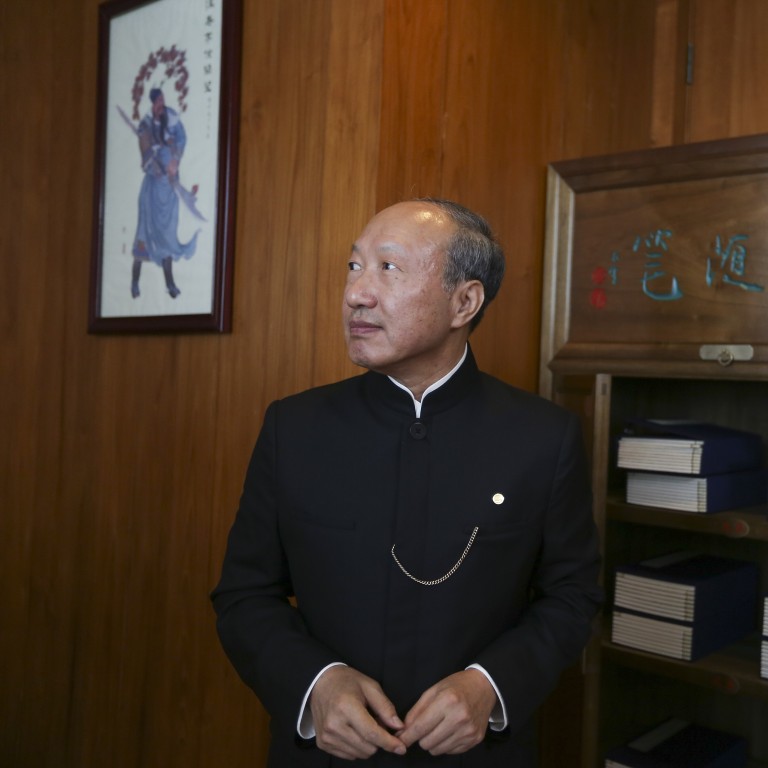
HNA’s key decision-making body leaves out Chen Feng’s name, signalling founder’s exit from China’s biggest asset buyer
- Chen Feng is not listed in the newly elected Communist Party committee members at HNA Group
- Gu Gang, executive chairman of the company, is the new party committee head
Chen Feng, the founder of China’s largest private airline, has been excluded from the key decision-making body of the HNA Group, in a dramatic development that signals his loss of control of one of the country’s largest conglomerates over five short years.
HNA Group, which Chen founded in 1993 in Hainan, had ballooned into a global conglomerate with 290,000 employees by 2017. The group started as Hainan Airlines, operating four aircraft to improve transport links between mainland China and its home base on Hainan island, long regarded as “China’s Hawaii” for its tropical beaches, azure waters and holiday resorts.
Fuelled by bank loans and armed with money earned from its aviation business, HNA Group went shopping, raking up stakes in Hilton Hotels and Resorts, Deutsche Bank and Ingram Micro, among dozens of other brand name assets.
The acquisition spree came to an end in 2017 when China’s financial regulators, fearful of risks to the banking industry, cracked down on the debt-fed binge. In February 2020, a working group comprising government officials representing the aviation regulator and Hainan provincial authorities was formed to restructure HNA Group’s finances.
The remaining members of HNA Group’s Communist Party committee are HNA Airport Holding’s chairman Wang Zhen, Hainan Airlines’ chairman Bao Qifa, the carrier’s vice chairman Liu Lu, Sanya Phoenix Airport’s chairman Liu Hauicai, HNA Group’s vice chairman Li Xianhua, HNA Technology Investment’s chairman Li Weijian, HNA Infrastructure Investment Group’s chairman Lu Xiaoming and HNA Innovation’s chairman Liao Hongyu.
The conglomerate has been selling assets to pay back debt amid liquidity crunch. It also faces the risk of its stakes being wiped out in overseas entities such as Swissport, the Switzerland-based airport cargo handling firm, and Virgin Australia, the second largest carrier in Australia.
The restructuring plan of the group could be finalised soon, as Gu said on Monday that the overall risk settlement plan is gradually being hammered out. HNA Group should improve its communication with creditors, in light of its failure to repay its bondholders, which scared away investors.


